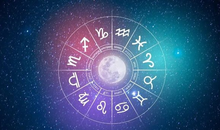
 Flash News
Flash News
Korça/ 40-year-old man jumps from fifth floor balcony, in critical condition
Croatia restores compulsory military service
Illegal constructions in Theth, Manja demands disciplinary proceedings against prosecutor Elsa Gjeli
Details from the murder of Renis Dobra, the perpetrators came with 2 Range Rover cars from Rrëshen
The Supreme Court left him in prison, Meta addresses the 'Constitution'
Friday the 13th! Why is today considered the third day of the year?

For those who don't believe it, it's just a number.
It is the worst that can happen to those who fear superstition, especially in Anglo-Saxon countries. Today is Friday the 13th. It is not science that wins in these cases, rather it is chance. The only advice is not to believe it and for those who believe it, not to suffer too much. It will be over in a few hours.
The numbers
The art of numbers is diverse. Does anyone really think Cristiano Ronaldo would play worse football if he wasn't wearing his number 7 shirt? No one. Just like no one should believe in lucky and unlucky numbers that vary depending on where you are. In the East, many are afraid of the number 4, and in very Catholic Spain, Fridays are not scary, but Tuesdays.
The unmotivated fear of the number 13 is called triscaidecaphobia, the fear of Friday the 13th is parascevedecatriaphobia, and the fear of the number 4 is tetraphobia Even superstitious people around the world know that this case is inevitable. There will always be Friday the 13th or 17th. At least one a year, let's say math and calendar.
The origins
What makes Friday the 13th unlucky, especially in Anglo-Saxon countries, has various and distant origins. None scientifically proven. The 13th in the Last Supper is Judas the traitor, and in Norse mythology the 13th demigod is the evil Loki, Thor's half-brother, who arrives uninvited at the banquet of the gods.
Jesus died on a Friday and it is the day on which hangings were carried out in Great Britain. All coincidences. There are 13 lunar months compared to 12 solar months. There are even those who say that 12 was the number of primitive humans with fingers and two feet. You can't get to 13 if you don't put your head down and that's why it was bad.
Cases of history
They are all coincidences, but, like many other dates, there are historical events that all happened on Friday the 13th. On this day, King Philip of France ordered the arrest of the Knights Templar. Also, on September 13, 1940, the Nazis bombed Buckingham Palace. On a Friday, November 13, 1970, a cyclone devastated Bangladesh, and also on a Friday, October 13, 1989, one of the biggest financial crises in history occurred.
It goes without saying that tens of thousands of other historical events have occurred on other dates: from the outbreak of world wars to dozens of attacks. There is also an anecdote that proves the opposite. In 1976, Daz Baxter from New York was apparently so scared of a Friday the 13th that he decided to stay in his bed. Mr Baxter was killed when the floor of his building collapsed.
The benefits of Friday the 13th
If you don't let yourself be swayed by myths and superstitions, Friday the 13th can bring countless advantages. Things done on days when no one wants to expose themselves to the dangers of fate, much less. The higher the supply, the lower the prices. This applies to both travel and weddings. Friday the 13th is bad for the economy because it leads to less profits for businesses (one estimate says $900 million), but an advantage for the consumer who doesn't allow himself to be intimidated by superstitions. If there are those who do not leave their homes, the traffic decreases and with it the risk of accidents.
Literature
Unlucky Friday is mentioned in The Canterbury Tales, but it has been firmly established in Western literature since the 17th century. The day and number do not appear together until the 20th century with the 1907 novel 'Friday the Thirteenth'.
There are even those who think that those who wanted to destroy superstitions were the ones who caused the fame of Friday the 13th to grow. A Philadelphia group, the Friday the 13th Club, consisted of 13 men who met between 1936 and 2000 every Friday the 13th at 1:13 p.m. They would eat lunch, go down the stairs, throw some salt and break the mirrors. They stopped at the year 2000 because according to the calendar they had created they would all be dead by that date.
Even older is the Skeptics Club of New York, dated January 13, 1882 by Captain William Fowler. It was called The Thirteen Club and the membership fee was also 13 cents a month or dollars for lifetime membership. 1,300 registered including President Theodore Roosevelt. There are versions in London and Paris. The next President Roosevelt, Franklin Delano, no longer traveled 13 and was feared like Napoleon.
Latest news


Malltezi: SPAK admits, we are in a process that began with Balla's false report
2025-07-10 22:34:16

Si të çliroheni nga bllokimet emocionale me anë të ushtrimeve
2025-07-10 21:57:24

Lala: Veliaj wanted to return as mayor
2025-07-10 21:40:46

VIDEO/ Brawl in Bolivian parliament, deputies physically clash
2025-07-10 21:20:30


Albania experienced one of the longest heat waves of the last decade
2025-07-10 21:01:09

The Government approves new procedures for declaring residence in e-Albania
2025-07-10 20:39:32

Koka: Northerners will not forget Edi Rama's racist operation in Theth
2025-07-10 20:18:24
The 3 zodiac signs that will be most affected by the 'Full Moon' of July 10
2025-07-10 20:04:49
New director of the National Center of Cinematography appointed
2025-07-10 19:51:12
Korça/ 40-year-old man jumps from fifth floor balcony, in critical condition
2025-07-10 19:40:19
'Tired Woman'/ The Syndrome That Affects Thousands of Women Every Day
2025-07-10 19:34:02
Jane Birkin's original Hermès bag sells for $10 million
2025-07-10 19:26:22

Britain-Ukraine agreement signed for 5,000 Thales missiles
2025-07-10 19:00:25
Fire in Zvërnec, flames endanger two hotels
2025-07-10 18:57:19
Croatia restores compulsory military service
2025-07-10 18:39:01
Spahia: The great truth of the strong accusation of the residents of Theth
2025-07-10 18:35:07


The Supreme Court left him in prison, Meta addresses the 'Constitution'
2025-07-10 17:57:21
New punishment with 'new' regulations
2025-07-10 17:54:46
EU translator fired over fears for Zelenskyy's safety
2025-07-10 17:45:37
'You are a policeman, but not God, take my soul', protest for Agon Zejnullahu
2025-07-10 17:41:21


Video/ Rama repeats the scenario, kneels before Meloni again
2025-07-10 16:56:31
He set fire to a plot of olive trees, 50-year-old man arrested in Shijak
2025-07-10 16:46:19

Rubio: US and Russia have exchanged new ideas for Ukraine peace talks
2025-07-10 16:36:20
Death of 27-year-old, Lipjan Police Commander Resigns
2025-07-10 16:21:28
Video/ An apartment burns in Tirana near the New Bazaar
2025-07-10 16:09:36


Jensila lights up the internet with her birthday greetings to Ledri
2025-07-10 15:42:08
They're full of pesticides! List of 12 products we need to be careful of
2025-07-10 15:31:04

Worker falls from scaffolding in Shëngjin, urgently sent to Trauma
2025-07-10 15:11:03
Malltezi: Within one day they seized my accounts, properties and shares
2025-07-10 15:01:23
EU: Israel has agreed to more aid to Gaza
2025-07-10 14:55:19


Murder of Reni Dobra, 23-year-old's vehicle pulled from the water
2025-07-10 14:29:23
Trump's tariffs on Brazil raise coffee prices
2025-07-10 14:16:07
Ursula von der Leyen survives no-confidence vote
2025-07-10 14:04:27


Fire in Lezha, flames near electrical substation
2025-07-10 13:32:24
Residents clash with police in Theth, a woman faints
2025-07-10 13:24:38
"Rama and Xanun"
2025-07-10 13:15:46

Zodiac signs most likely to get divorced in July 2025
2025-07-10 12:45:51
A scapegoat for an illegitimate Republic
2025-07-10 12:35:02
"He has devastated his own nation"/ Berisha: Rama imprisons his opponents!
2025-07-10 12:26:54

Albanian man injured with knife in Italy
2025-07-10 12:08:55






23-year-old in Mat drowned with rope, 4 suspects are being held
2025-07-10 10:58:53

After the dismissals, the new director of the Shkodra Police is appointed
2025-07-10 10:30:10
BIRN: Rama's action for public spaces, a repeated spectacle
2025-07-10 10:29:11
Action in Theth, Shkodra Police leaders dismissed
2025-07-10 10:16:28
Fatal accident on the Tirana-Durres highway
2025-07-10 10:01:58
The incinerator does not exist, but the government continues to increase funds
2025-07-10 09:51:45
Albania is aging at a rapid pace! 30% of the population is over 60 years old
2025-07-10 09:46:23
End of an era, Modric says 'goodbye' to Real Madrid
2025-07-10 09:36:09
Mount Dukat has been on fire for 6 days, residents request air intervention
2025-07-10 09:27:24

"Poverty on the rise"/ DW: Many people in Germany are not getting paid
2025-07-10 09:08:06
Horoscope, what do the stars have in store for you today?
2025-07-10 08:51:59




The scorching heat returns, the thermometer climbs to 40°C
2025-07-10 07:58:52
Morning Post/ In 2 lines: What mattered yesterday in Albania
2025-07-10 07:46:35
Tourist operator in Theth: They are demolishing our houses without warning
2025-07-09 22:54:57

Trump and Israeli commander warn: Gaza ceasefire could be near
2025-07-09 22:13:21
Fire in Elbasan Landfill, pedagogue: It is a cancer and environmental crime
2025-07-09 21:54:47


Dangerous summer, number of snake bites increases
2025-07-09 21:22:13
Berisha appeals again: Stop state terror against the residents of Theth!
2025-07-09 21:15:36
'Kissing disease' virus linked to several forms of cancer
2025-07-09 21:04:44
Malltezi confesses after release: Justice has become a political weapon
2025-07-09 20:51:48
Vokshi: Albania's EU integration has stalled due to lack of free elections
2025-07-09 20:37:21
